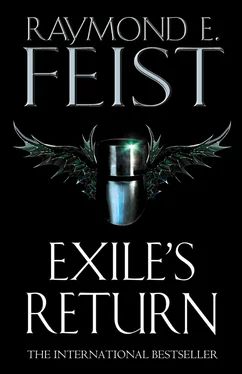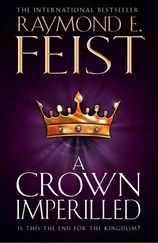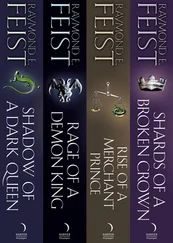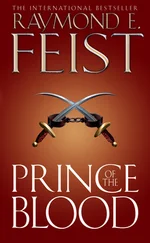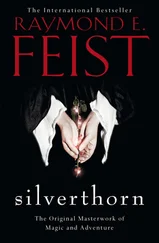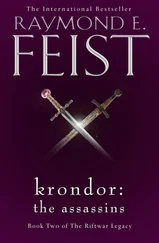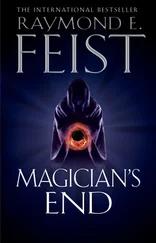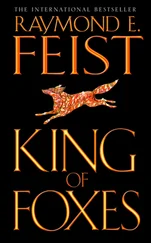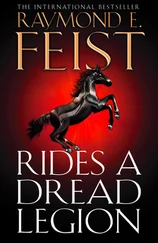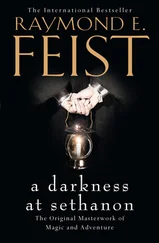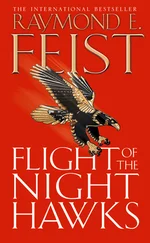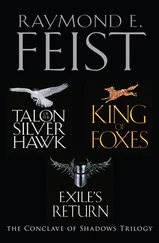Kaspar said, ‘Food is food and I’m hungry.’
Then Jojanna said, ‘You still have no horse.’
Kaspar shrugged. ‘I’ll find a way. Perhaps I’ll find a boat heading downriver.’
‘That would be difficult.’
‘Why?’ asked Kaspar as he moved to pour himself another ale while Sagrin worked in the kitchen.
‘I’ll tell you over supper. I had better go find Jorgen.’
Kaspar nodded, drank the ale. A man could have a worse life than being married to a woman like Jojanna, with a son like Jorgen , he thought to himself. Then he looked around the pitiful inn and thought, But he could have a much better one, too.
Kaspar came awake first. Jojanna and Jorgen slept on two cots that served for beds in the inn and Kaspar lay on a pallet on the floor.
Something had disturbed his rest. He listened intently. Horses!
Drawing his sword, he hurried along the hall and down the stairs. He found Sagrin already waiting in the common room, holding an old blade. Kaspar motioned for the stout old soldier to move to one side of the door as Kaspar hurried to the window.
He counted five riders. They milled around and chattered. One pointed towards the inn and another shook his head and pointed up the road. They wore heavy cloaks, but Kaspar could see enough of their garb to recognize them for what they were: soldiers.
After a moment, they turned as a group and rode north.
Kaspar said, ‘They’re gone.’
‘Who were they?’ asked Sagrin.
‘Soldiers. They wore cavalry boots. I could see a single stripe on their tunics, though I couldn’t make out its colour – white or perhaps yellow. They bore identical swords, but no bows or shields. They wore turbans with feathers on their heads.’
‘Damn,’ said Sagrin. ‘They must have decided to go to Mastaba, but they’ll be back.’
‘Who are they?’
‘There is a bandit to the south, in the city of Delga – if you can call it a city – who calls himself the Raj of Muboya. Those are his men. He’s claiming all the land between Delga and the banks of the Serpent Lake, and he’s garrisoning the towns and villages. The bastard is also taxing people.’
Kaspar said, ‘Is he offering protection?’
‘Of a sort,’ answered Sagrin. ‘He protects us from the other renegades and bandits around here, so he can pluck us like chickens himself.’
‘It costs money to govern,’ said Kaspar.
‘I do just fine without a government,’ said Sagrin.
‘Find enough people with swords to agree with you, and you might convince him. Those five I saw could probably run this entire town without additional help.’
‘You’re right,’ said Sagrin as he sat heavily in a chair. ‘I’m what passes for a warrior in these parts. A couple of the farmers are strong, but none are trained to fight.
‘I only know what I know because my father formed a militia when I was a boy and we fought a lot of thugs in our day.’ He pointed to the scars on his arms. ‘Make no mistake, these were honestly earned, Kaspar. But now I’m an old man. I would fight, but I know I wouldn’t win.’
‘Well, this Raj might not be the first bandit to found a dynasty. Where I come from –’ He dropped the thought, then said instead, ‘If he can bring order and safety to people like Jojanna and Jorgen – women and children – that would be a good thing, no?’
‘I guess. Whatever is going to happen will happen. But I reserve the right to complain.’
Kaspar chuckled. ‘Feel free.’
‘Are you staying with Jojanna?’ he asked, and Kaspar took his meaning.
‘No. She’s a good woman who hopes that her husband is still alive.’
‘Slim chance. If he is, he’s toiling in a mine, working on some rich merchant’s farm to the south, or fighting in the arena down in the City of the Serpent River.’
‘I have my own plans, in any event,’ said Kaspar. ‘They don’t include being a farmer.’
‘Didn’t take you for one. Soldier?’
‘For a time.’
‘Something else, too, I wager,’ said Sagrin. Heaving himself out of the chair he added, ‘Well, I might as well get started; the sun will be up in an hour and I rarely fall back to sleep easily, especially if I must sleep with a sword in my hand.’
Kaspar nodded. ‘I understand.’
He now knew what his next step must be. He needed to head south. There was a man gathering an army there, no matter what he called himself, and he had horses.
Kaspar needed a horse.
K ASPAR WAITED SILENTLY.
He crouched behind some low brush while a patrol of cavalry rode by. He had encountered two other patrols over the last week since leaving Jojanna’s farm. Given what little he knew of these people, he had decided to avoid contact with them. Common soldiers had a decided tendency to use weapons before asking questions, and Kaspar had no desire to end up dead, a prisoner, or enlisted into any army at the point of a sword.
Leaving the farm had proved more troubling than he had expected. Jorgen seemed especially disturbed by the prospect of being alone with his mother again. On the other hand, the mule would help with all the heavy work, and Kelpita had a son who would come and work with them during harvest so Jojanna wouldn’t lose her grain.
Kaspar considered how they would have fared had he never arrived. They’d still be scrabbling to run the farm and wouldn’t have had enough wood or the mule.
Still, it had been harder to say goodbye than he had anticipated.
A couple of days before, he had skirted a village that appeared to be a staging post for the local patrols, and then had bartered a day’s work at a farm just off the road for a meal. The food had been meagre and they had only offered him water to drink, but he had been glad for it. Kaspar remembered the lavish meals that had been the hallmark of his court, but quickly pushed the memory aside. He’d happily kill someone for a cut of hot rare beef, a bowl of his cook’s spiced vegetables and a flagon of good Ravensberg wine.
Certain the riders were now gone, Kaspar returned to trudging along the road. What had been a broken old highway appeared to be in better condition the farther south he moved. There were signs of relatively recent repair-work at various places he had passed over the last two days.
As he rounded a bend in the road, he saw a large town in the distance. The land around him was getting progressively more verdant and abundant. Whatever else this Raj of Muboya had done, he had pacified the territory around his capital to the point at which farmers were prospering again; farms lined the road and orchards were visible up on the hillsides. Perhaps in time this more peaceful aspect would be visited upon the area where Jorgen and his mother lived. He would like to think the boy had a chance for a better life.
As he approached the gate of the town he saw signs of harsh justice. A dozen corpses in various stages of decay were on display, as well as half a dozen heads impaled on stakes. The men had been hung by ropes on crosses of wood, ‘crucified’ in the Quegan language. He had been told it was a nasty way to die; after a while the body could not prevent fluid from gathering in the lungs and a man would drown in his own spit.
At the gate a squad of soldiers waited, each dressed like those he had seen on horseback, save that they lacked the cloaks and fancy hats. These ones also wore metal helms with chain guards over their necks.
One sauntered over to intercept Kaspar. ‘Your business in Delga?’
‘Just passing through on my way south.’
‘You have an odd accent.’
‘I’m not from around here.’
‘Your trade?’
‘I’m a hunter now. I was a soldier.’
Читать дальше
